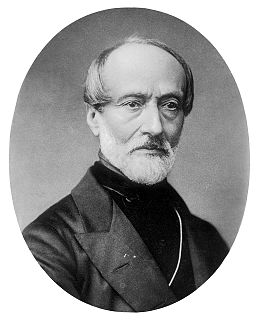A Quote by Marian Keyes
why can't we love the right people? what is so wrong with us that we rush into situations to which we are manifestly unsuited, which will hurt us and others? why are we given emotions which we cannot control and which move in exact contradiction to what we really want? we are walking conflicts, internal battles on legs.
Related Quotes
Correct is to recognize what diseases are and whence they come; which are long and which are short; which are mortal and which are not; which are in the process of changing into others; which are increasing and which are diminishing; which are major and which are minor; to treat the diseases that can be treated, but to recognize the ones that cannot be, and to know why they cannot be; by treating patients with the former, to give them the benefit of treatment as far as it is possible.
Whence came I, whither go I? Science cannot tell us a word about why music delights us, of why and how an old song can move us to tears. Science is reticent too when it is a question of the great Unity – the One of Parmenides – of which we all somehow form part, to which we belong. The most popular name for it in our time is God – with a capital ‘G’. Whence come I and whither go I? That is the great unfathomable question, the same for every one of us. Science has no answer to it.
When the time comes to you at which you will be forced at last to utter the speech which has lain at the center of your soul for years, which you have, all that time, idiot-like, been saying over and over, you'll not talk about the joy of words. I saw well why the gods do not speak to us openly, nor let us answer. Till that word can be dug out of us, why should they hear the babble that we think we mean? How can they meet us face to face till we have faces?
O my Brothers! love your Country. Our Country is our home, the home which God has given us, placing therein a numerous family which we love and are loved by, and with which we have a more intimate and quicker communion of feeling and thought than with others; a family which by its concentration upon a given spot, and by the homogeneous nature of its elements, is destined for a special kind of activity.
People need to learn how to respond to each other's hatreds with love - which is what Jesus taught us, which is what Buddha came here to teach us, which is what Muhammad taught us, which is what all of the great spiritual masters who have ever walked among us who live at those highest energies taught us - responding to force with more force will just create more problems.
Over two thousand years ago, Aristotle taught us that money should be durable, divisible, consistent, convenient, and value in itself. It should be durable, which is why wheat isn't money; divisible which is why works of art are not money; consistent which is why real estate isn't money; convenient, which is why lead isn't money; value in itself, which is why paper shouldn't be money. Gold answers to all these criteria.
Unfortunately, overall, movies are a conglomerate. People buy and sell people in this business, which can get really ugly unless you have the right set of values and understand why you're doing it. Luckily, I was raised by people who'd already gotten to that point, and seen all the yuck stuff - which is probably why they originally didn't want me to act.
[T]ruly to escape Hegel involves an exact appreciation of the price we have to pay to detach ourselves from him. It assumes that we are aware of the extent to which Hegel, insidiously perhaps, is close to us; it implies a knowledge, in that which permits us to think against Hegel, of that which remains Hegelian. We have to determine the extent to which our anti-Hegelianism is possibly one of his tricks directed against us, at the end of which he stands, motionless, waiting for us.
The Lord knows our bearing capacity, both as to coping and to comprehending, and He will not give us more to bear than we can manage at the moment, though to us it may seem otherwise. Just as no temptations will come to us from which we cannot escape or which we cannot bear, we will not be given more trials than we can sustain.
Thought cannot avoid the ethical or reverence and love for all life. It will abandon the old confined systems of ethics and be forced to recognize the ethics that knows no bounds. But on the other hand, those who believe in love for all creation must realize clearly the difficulties involved in the problem of a boundless ethic and must be resolved not to veil from humankind the conflicts which this ethic will involve us, but allow us really to experience them. To think out in every implication the ethic of love for all creation this is the difficult task which confronts our age.
There is a form of eminence which does not depend on fate; it is an air which sets us apart and seems to prtend great things; it is the value which we unconsciously attach to ourselves; it is the quality which wins us deference of others; more than birth, position, or ability, it gives us ascendance.
The practice of patience guards us against losing our presence of mind. It enables us to remain undisturbed, even when the situation is really difficult. It gives us a certain amount of inner peace, which allows us some self-control, so that we can choose to respond to situations in an appropriate and compassionate manner, rather than being driven by our disturbing emotions.




































